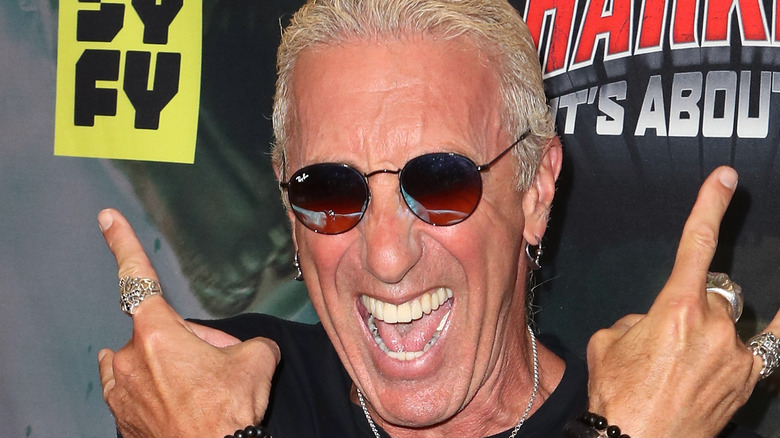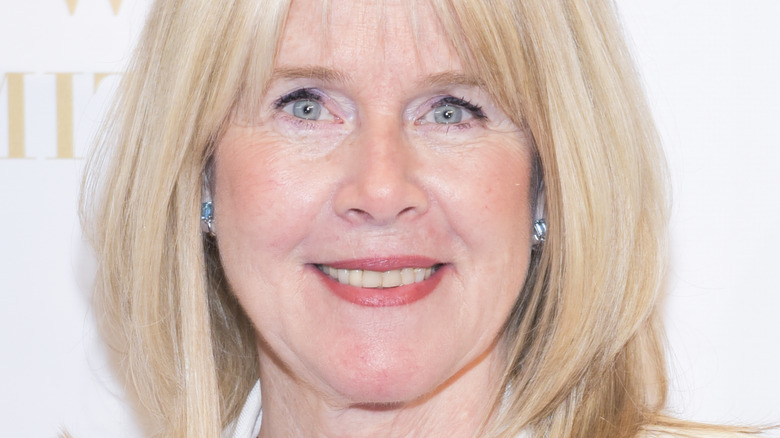How Dee Snider Defended Rock Music From The Government
Rock 'n' roll has been a matter of controversy from the very beginning. Remember Elvis Presley's swiveling hips or the wild and rambunctious performances from artists like Jerry Lee Lewis and Little Richard? Even a group now considered to be family-friendly like The Beatles caused some controversy with their floppy hairdos early on. Looking back, the uproar over these kinds of artists typically seems to be an overreaction by a segment of the population that's nothing more than behind the times. One such period when popular was public enemy number one, according to some, was in the 1980s when the U.S. government and the Parents Music Resource Center or the P.M.R.C. — lead by Tipper Gore, wife of Al Gore — decided to do something about what they perceived to be a public health crisis: filthy lyrics in popular music.
The group designated what they called the "The Filthy 15," according to Ghost Cult Magazine, which was music they felt to be particularly egregious by standards of decency, including artists like Prince, Madonna, Black Sabbath, and Twisted Sister, a heavy metal and hard rock band popular at the time. Whenever government censorship is proposed, artists and musicians are usually among the first to step up in opposition, as was the case when Dee Snider, lead singer with Twisted Sister, defended rock music from the government.
He fought for his right to testify before the U.S. Senate
As Ultimate Classic Rock reports, Dee Snider, along with other musicians like Frank Zappa and John Denver, testified in 1985 before the U.S. Congress, defending their artistic freedom, and opposing creative censorship. One particular target of the P.M.R.C was the Twisted Sister video for their hit song "We're Not Gonna Take It," which depicts acts of violence. Snider contended the song and video were being misinterpreted, and that it was ultimately the responsibility of parents to monitor what it was their children were listening to. In one particularly legendary moment, Snider even asked the normally strait-laced Al Gore if he was a fan of his group.
Nothing much came of the P.M.R.C or the senate hearing at which Snider testified. The music industry and the RIAA, or the Recording Industry Association of America, eventually decided to monitor itself, adding parental advisory stickers to their packaging, according to The Culture Trip. Most musicians dream of cementing their place in history on stage, looking back, however, Dee Snider may have had his most shining moment testifying before Congress: When it came to government censorship of popular music, he simply wasn't gonna take it.

